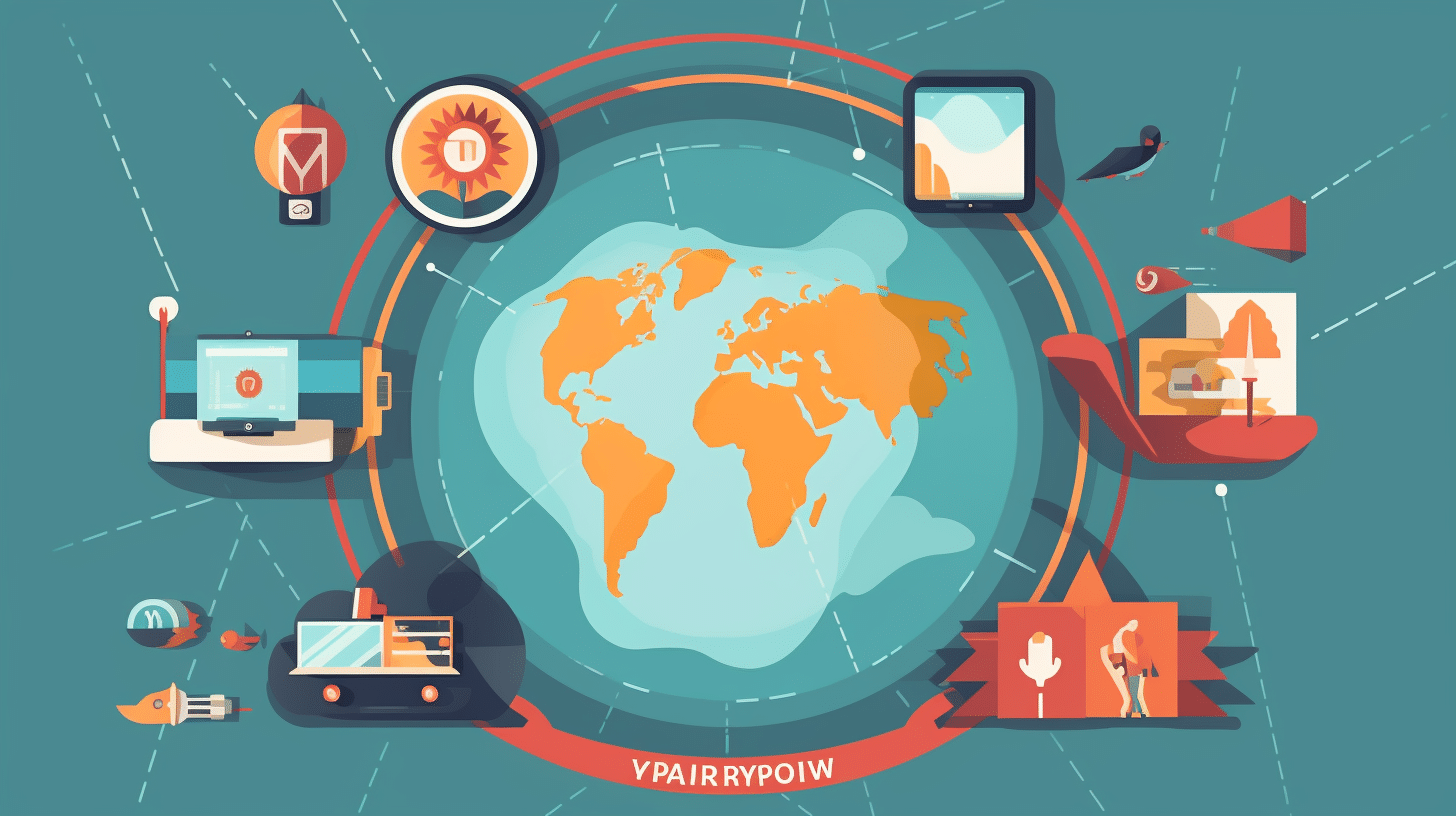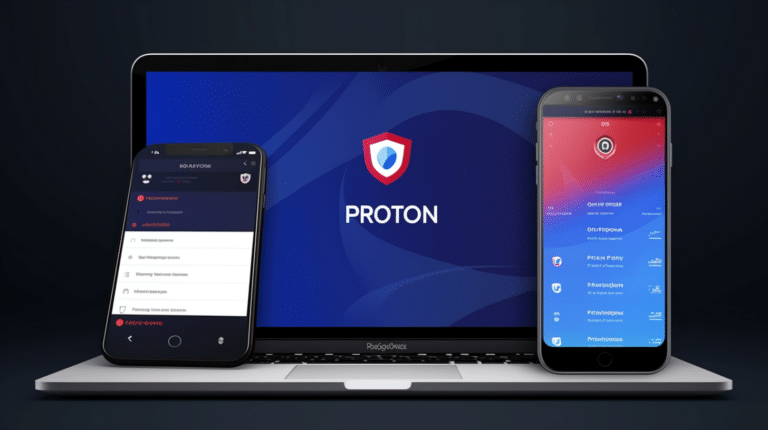Virtual Private Networks (VPNs) have become an essential tool for many internet users, as they help protect privacy and offer a more secure browsing experience. By creating a secure, encrypted connection between a user’s device and a remote server, VPNs allow for anonymous surfing and access to geo-restricted content. There are several types of VPNs available, each designed to cater to specific user needs and various security levels.
Understanding the different types of VPNs and their protocols is crucial for selecting the right VPN service. Two main categories include Site-to-Site VPNs, which provide a secure connection between two or more networks, and Remote Access VPNs, allowing individuals to connect to a private network from a remote location via the internet. VPN protocols determine how data is transmitted and encrypted, with some offering higher levels of security and performance than others.
With a vast array of commercial VPN services available, it’s essential to evaluate the features, platforms supported, and limitations of each offering. Users should also be mindful of potential drawbacks, such as impact on internet speeds and limited access to certain websites or services when using a VPN.
Key Takeaways
- VPNs help protect user privacy by creating secure, encrypted connections
- Site-to-Site and Remote Access VPNs cater to different user needs and security levels
- Choosing the right VPN service requires evaluating features, protocols, and limitations
Understanding VPNs
A Virtual Private Network (VPN) is a valuable tool that helps protect your privacy and enhance your security while using the internet. By creating a private network from a public internet connection, VPNs effectively mask your IP address, ensuring your online activities remain virtually untraceable.
There are several types of VPNs available, with the most common being Remote Access VPNs. These VPNs connect users to a private network via a secure remote server. By routing a user’s data through a virtual tunnel between their device and the private network, a Remote Access VPN provides a secure connection suitable for both home and business users.
VPN technology employs various protocols to maintain the secure and encrypted connections between user devices and private networks. Some commonly used VPN protocols include OpenVPN, L2TP/IPsec, and IKEv2/IPsec. These protocols help ensure that your data is encrypted and your connection remains private, effectively hiding your online activities from potential third-party snoopers.
When using a VPN, it is essential to understand that while it significantly enhances your security and privacy, it does not make you invincible online. VPNs should be considered a valuable component of your privacy toolbox, working in conjunction with other security measures like strong passwords and antivirus software.
In summary, VPNs, or Virtual Private Networks, offer a secure and private way to connect to the internet. By utilizing various protocols and data encryption methods, VPNs help safeguard your online privacy and improve your security while browsing the web. Whether you’re a home user looking to protect your browsing habits or a business user accessing sensitive data remotely, a VPN connection can be a crucial tool in maintaining your digital privacy.
Types of VPNs
Virtual Private Networks (VPNs) are vital in providing secure and private connections over the internet. There are several types of VPNs available to serve different purposes. Below is an overview of the main types of VPNs:
- Remote Access VPN: is the most common type of VPN in use today, allowing users to connect to a private network via a secure remote server. Through a virtual tunnel, the user’s device and the private network are connected, ensuring data is safely transmitted and enabling work to be conducted remotely 1.
- Site-to-Site VPN: facilitates the connection between multiple fixed locations, such as offices or branches, through a secure and encrypted virtual bridge. This type of VPN is ideal for businesses or large corporations as it provides a secure way to communicate and share resources 2.
- Mobile VPN: is specifically designed for mobile devices, offering a consistent user experience with seamless connectivity as users roam between networks or switch connections. Mobile VPNs cater to the modern teleworker, ensuring their connection remains secure, even when moving between Wi-Fi networks or using cellular data 3.
- Personal VPNs: are designed for individual use, providing privacy and security for users when connecting to public Wi-Fi networks or accessing geo-restricted content. These VPNs help users to protect their data, browse anonymously, and avoid tracking 4.
- Business VPNs: cater specifically to organizations, offering advanced security features and dedicated support. Business VPNs are ideal for protecting sensitive data and enabling remote access to company resources 5.
- Intranet-based VPN: is used to connect multiple locations within an organization, acting as a private network that streamlines communication and collaboration between different offices.
- Extranet-based VPN: allows organizations to securely share resources and data with external partners or customers, such as suppliers or contractors, without granting them full access to the internal network.
- Cloud VPN: also known as VPN-as-a-Service (VPNaas), provides secure access to cloud resources and applications. This type of VPN enables users to access their private cloud networks remotely and securely through the internet.
In conclusion, the various types of VPNs cater to different needs, from personal use to business operations, ultimately providing a secure and private connection across the internet.
Site-to-Site VPNs
A site-to-site VPN is a secure connection between two or more networks, such as a corporate network and a branch office network. It enables employees in different locations to securely share resources and information across the public internet, effectively connecting local area networks (LANs) in multiple sites together.
Site-to-site VPNs rely on a VPN tunnel to establish a secure communication channel between the networks. This tunnel is formed by encapsulating and encrypting data packets from one network, transmitting them through the internet, and then decrypting them at the receiving network. This process ensures that all communication between the networks remains confidential and inaccessible to unauthorized users.
There are two main types of site-to-site VPNs: intranet-based and extranet-based. An intranet-based site-to-site VPN connects a corporate network to one or more branch office networks, allowing employees to access and share resources within the organization. This type of VPN is commonly used to establish a secure connection across a company’s wide area network (WAN), enabling seamless communication between different locations.
In contrast, an extranet-based site-to-site VPN connects a corporate network to an external partner’s network, such as a supplier, customer, or other organization. This type of VPN allows different organizations to collaborate securely, while still keeping their respective intranets separate and inaccessible to each other.
When implementing site-to-site VPNs, network administrators must consider factors like network topology, security requirements, performance, and scalability. Setting up a site-to-site VPN often requires specialized equipment, such as VPN gateways or routers with VPN capabilities. These devices manage the encryption, decryption, and tunneling processes, ensuring a secure and reliable connection between the networks.
In summary, site-to-site VPNs provide a secure and efficient way to connect geographically dispersed networks, enabling organizations to share resources, collaborate, and communicate effectively. By establishing a secure VPN tunnel, these networks can maintain confidentiality and integrity, even when transmitting sensitive data across the public internet.
Remote Access VPNs
Remote Access VPNs are a popular solution for users to connect to private networks through a secure server. Using a remote access VPN, individuals can securely access resources and services on these networks as if they were physically present within the network.
One of the main features of remote access VPNs is their ability to create a secure connection between a user’s device and a VPN server. This is done by establishing an encrypted tunnel that routes the user’s data through a private tunnel. As a result, data transfers are protected, and unauthorized parties cannot intercept or tamper with communications.
Not only does a remote access VPN enhance security, but it also provides users with better internet access. When connected to a VPN server, users can bypass geographic restrictions and access content that might be otherwise unavailable in their region. This is particularly useful for employees working remotely or individuals traveling internationally who need to access region-specific content.
There are various VPN services available, each with its unique features and benefits. These services often offer strong encryption protocols, authentication methods, and additional security measures to ensure a secure connection over the public internet.
In summary, remote access VPNs are crucial for maintaining secure communication and data transfers over the public internet. They offer a solid solution for users who require a safe, encrypted connection while accessing resources and services within a private network.
VPN Protocols
There are several VPN protocols available, each with its own advantages and disadvantages. The most common protocols include:
- OpenVPN: A highly configurable, open-source protocol that offers a good balance of security and speed. It uses SSL/TLS for key exchange and is considered one of the most secure VPN protocols available. For more information, check out this VPN protocols comparison.
- IPsec (Internet Protocol Security): A protocol suite primarily used to secure IP communications. It can be applied in conjunction with other protocols like L2TP to create secure, encrypted tunnels.
- PPTP (Point-to-Point Tunneling Protocol): One of the oldest VPN protocols, PPTP provides basic security features but has been criticized for its lack of robust encryption. It is generally considered less secure than other options.
- L2TP (Layer 2 Tunneling Protocol): L2TP often comes paired with IPsec, resulting in a stable and secure VPN connection. It is typically slower than other protocols due to the double encapsulation process.
- SSTP (Secure Socket Tunneling Protocol): Developed by Microsoft, SSTP uses SSL/TLS and offers strong security. However, it is only natively supported on Windows devices.
- SSL/TLS: These encryption protocols underlie the encryption process of HTTPS and other secure online transactions. While they are not developed specifically for VPNs, some VPN services rely on them to create secure connections.
When choosing a VPN protocol, it is important to consider the balance between security and performance. OpenVPN, L2TP/IPsec, and SSTP are generally regarded as some of the more secure options available, while PPTP is considered less secure. For more information on how these protocols compare, see this guide.
Remember that the effectiveness of any VPN protocol also depends on proper implementation and secure key management. It is crucial to choose a reputable VPN provider to ensure your data is effectively protected.
Internet Security and VPNs
One of the primary goals of internet security is to protect user data and communication from unauthorized access. This is where VPNs (Virtual Private Networks) come into play. VPNs enhance your online privacy by creating an encrypted connection between your device and a secure, remote server. This connection masks your IP address, making your online activities harder to trace by cybercriminals and ISPs (Internet Service Providers).
Encryption is a fundamental aspect of VPNs, as it converts your data into a code that can only be deciphered using a specific decryption key. Strong encryption protocols, such as IPSec and SSL, are employed by popular VPN services to ensure the privacy and security of your data.
As you connect to a VPN, your data is routed through a secure virtual tunnel, creating a separating layer between your device and potential hackers. This added layer of security is especially critical when using public Wi-Fi networks, which are often targeted by cybercriminals.
A VPN can also protect you from invasive monitoring by your ISP. ISPs often collect and store your browsing data for various purposes. By using a VPN, you can prevent ISPs from snooping on your online activities.
In addition to encryption, VPNs often come equipped with a variety of security features, such as firewalls and kill switches. Firewalls safeguard your device from unauthorized incoming traffic, while kill switches automatically cut off your internet connection in case the VPN connection fails. This ensures that your data remains secure even in unpredictable situations.
To further enhance security, many VPN providers also offer two-factor authentication (2FA). 2FA requires users to provide two forms of identification before gaining access to their VPN account, making it much harder for unauthorized users to gain access.
To sum up, VPNs are a crucial tool in the realm of internet security. They offer encryption, privacy protection, and additional security features to protect your data and online activities from potential threats. By using a VPN, you can confidently browse the internet knowing your information is secure.
VPNs For Different Platforms
When it comes to using VPNs on different platforms, it’s important to consider the wide range of options available. VPNs can be used on various devices and for different purposes. They help maintain privacy and security across various connections, including public Wi-Fi networks.
For computers and smartphones, premium VPNs and budget VPNs offer an array of features to cater to your needs. ExpressVPN is a popular premium VPN, while free VPNs can sometimes provide a basic level of protection and security for users who are looking for a more affordable option. Keep in mind that free VPNs may come with limitations and potential security risks.
When using public Wi-Fi networks, it’s essential to use a VPN to protect your sensitive data from hackers and other malicious actors. A VPN encrypts your data and sends it through a secure tunnel, ensuring it remains private even on unsecured connections.
One common protocol used in VPNs is Layer 2 Tunneling Protocol (L2TP), which creates a secure and private tunnel for your data. L2TP is often combined with another protocol, such as Internet Protocol Security (IPsec), to enhance its level of encryption.
Premium VPNs typically offer better support, faster connection speeds, and a higher number of server locations compared to budget or free options. These factors can be crucial for users who need efficient and dependable connections, especially for those using VPNs for accessing geo-restricted content on streaming platforms like Netflix or Hulu.
In conclusion, selecting the right VPN for your platform should consider factors like security, speed, device compatibility, and cost. Choosing a suitable VPN service can provide you with an enhanced internet experience, ensuring both privacy and unrestricted access to your desired content.
Commercial VPN Services
Commercial VPN services offer a range of tools and features to help users protect their privacy and secure their data while browsing the internet. These services can be particularly useful when connecting to public networks or when the need arises for secure data transfers.
Some of the popular VPN providers include ExpressVPN, NordVPN, Surfshark, CyberGhost, Hotspot Shield, and AirVPN. Each of these providers offers a unique set of features and tools designed to help users maintain online privacy and security.
One advantage of using commercial VPN services is the implementation of modern VPN software, such as WireGuard. WireGuard is a fast, lightweight, and secure protocol that offers improved performance and security compared to older VPN protocols. Many VPN providers have adopted WireGuard due to its efficiency and benefits in ensuring encrypted data transfers.
When selecting a commercial VPN service, users should consider the provider’s approach to privacy and data protection. Reputable VPN providers maintain a strict no-logs policy, meaning they do not store any information about the user’s online activities. Additionally, the provider should offer strong encryption methods to safeguard data transferred across their networks.
Most commercial VPN services also offer applications for various platforms, such as Windows, macOS, Android, and iOS, making it easy for users to set up and utilize their VPN services on multiple devices.
In conclusion, choosing the right commercial VPN service is essential for individuals and businesses looking to ensure online privacy and secure data transfers. By considering factors such as the provider’s track record, level of encryption, and supported VPN protocols, users can make an informed decision and select the best service to meet their needs.
Limitations of VPNs
While VPNs provide an enhanced level of security and privacy, they do come with some limitations. One of the key drawbacks is the impact on connection speeds. As VPNs route your internet traffic through a secure tunnel, it can sometimes result in slower performance, especially if the VPN server is located far away from your actual location.
Another concern is availability. Not all VPNs offer seamless service 24/7, and server interruptions can cause temporary disruption to your connection. This can be particularly problematic if you rely on a VPN for business or essential tasks where uninterrupted access is crucial.
In terms of routing, VPNs can sometimes limit the flexibility of your internet traffic routing options. For example, certain VPNs may not support split tunneling, which allows you to route part of your traffic through the VPN while allowing the rest to access the internet directly. This can lead to inefficiencies and unnecessary use of VPN bandwidth for non-sensitive tasks.
When it comes to cloud-based infrastructure, VPNs might not always offer the best solution. With the growing popularity of cloud services, VPNs may struggle to keep up with the advancements in security and privacy provided by cloud-native solutions. Therefore, businesses that rely heavily on cloud services may need to evaluate multi-cloud security solutions to ensure a secure and private connection.
Lastly, some VPNs might not be able to bypass geographical restrictions or firewall settings implemented by certain websites or countries. For instance, some streaming services have become adept at detecting and blocking VPN usage, restricting users’ access to content based on their location.
In summary, while VPNs offer numerous benefits in terms of privacy and security, it is vital to consider their limitations around connection speeds, availability, routing, and compatibility with cloud-based infrastructure when deciding whether to use a VPN.
Frequently Asked Questions
What are the main VPN protocols?
There are several VPN protocols available, each with its advantages and disadvantages. Some of the popular ones include:
- PPTP (Point-to-Point Tunneling Protocol): One of the oldest protocols, PPTP offers fast speeds but can be less secure.
- L2TP/IPsec (Layer 2 Tunneling Protocol with Internet Protocol Security): This protocol offers increased security by combining L2TP with IPsec. It’s a suitable choice for sensitive data transmission.
- OpenVPN: An open-source protocol, OpenVPN allows high levels of customization. It offers excellent security and performance.
- IKEv2 (Internet Key Exchange version 2): Developed by Microsoft and Cisco, IKEv2 is ideal for mobile devices due to its stable and fast reconnection capabilities.
Which VPNs offer the best security?
The security of a VPN depends on the encryption and authentication methods it uses. OpenVPN and L2TP/IPsec are considered to provide strong security. However, the security level also depends on other factors such as the VPN service provider’s policies and technical configuration.
What is the difference between site-to-site and remote access VPNs?
A site-to-site VPN connects two or more remote networks, allowing them to share resources securely. It’s beneficial for organizations with multiple offices that need access to a central network.
A remote access VPN connects individual users to a private network, typically through a secure remote server. This type of VPN is useful for employees working remotely or travelers who need access to their organization’s network.
What are the key elements of VPN operation?
The main components of VPN operation include:
- Tunneling: The process of encapsulating data packets from the sender’s network in another protocol, which facilitates secure transmission across the internet.
- Encryption: The process of converting data into a complex code that is only readable by authorized parties, ensuring data security and privacy.
- Authentication: Verification of the identities of the communicating parties to ensure the integrity and legitimacy of the parties involved in data transmission.
How does SSL VPN compare to other types?
An SSL VPN (Secure Socket Layer VPN) allows users to access restricted content through a web browser without needing to install client software. SSL VPNs can provide secure access to web-based applications, while other VPN types, like OpenVPN, require the installation of client software. SSL VPNs are known for their ease of use and compatibility with various devices and platforms.
What are the common VPN configurations in Cisco products?
Cisco offers a variety of VPN solutions, including:
- Client-based VPN: For remote access, Cisco AnyConnect Secure Mobility Client can be configured to establish a secure VPN tunnel.
- Site-to-site VPN: Cisco products such as routers and VPN concentrators can be employed to establish site-to-site VPN connections between different sites or networks.
- SSL VPN: Cisco ASA (Adaptive Security Appliance) can be configured to provide SSL VPN services for browser-based access to restricted network resources.
Remember, it’s essential to select a VPN configuration that aligns with your organization’s security and connectivity requirements.






